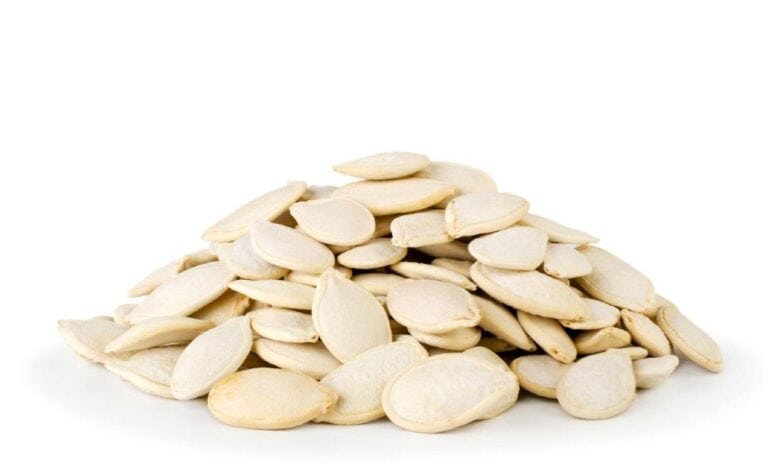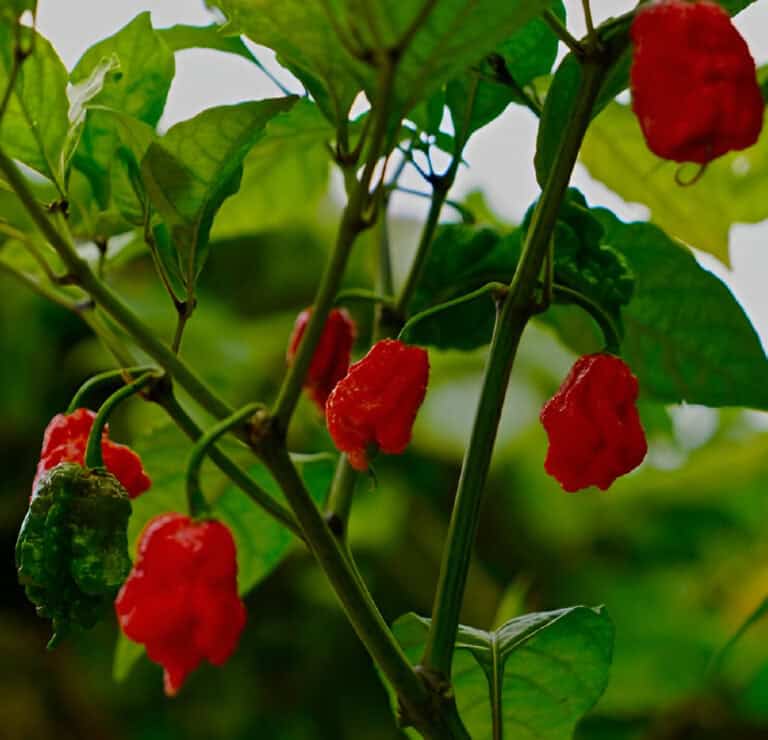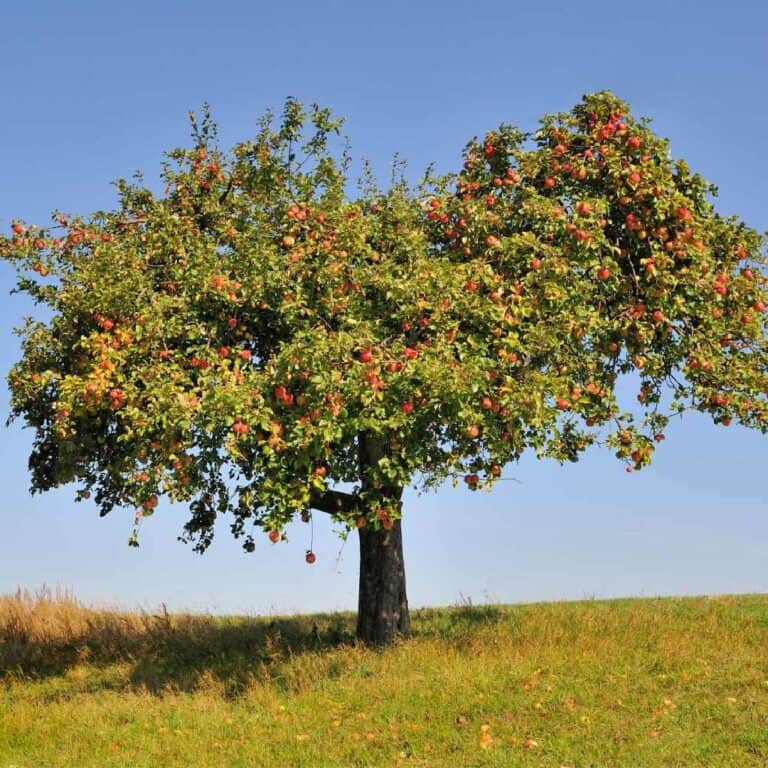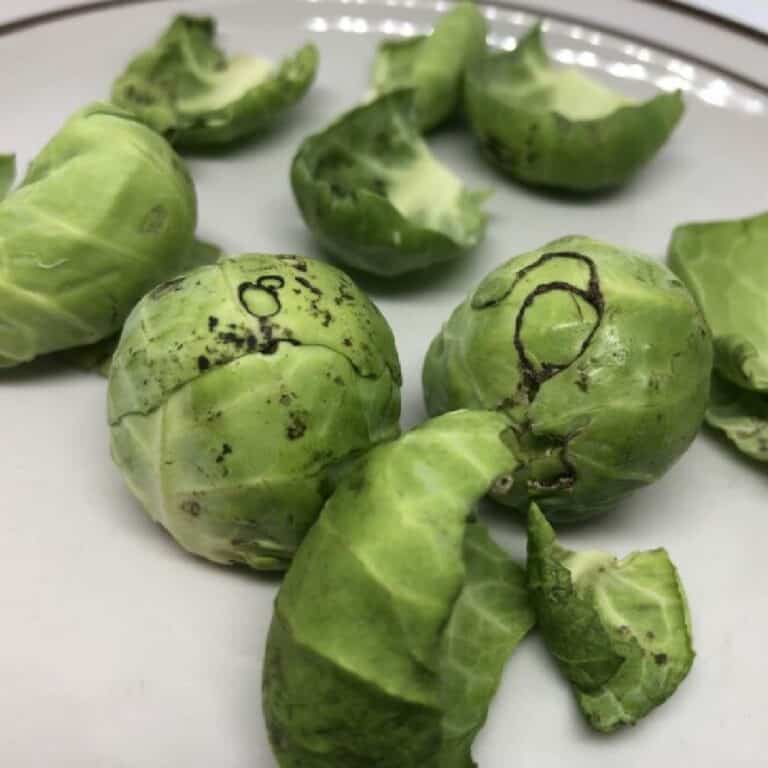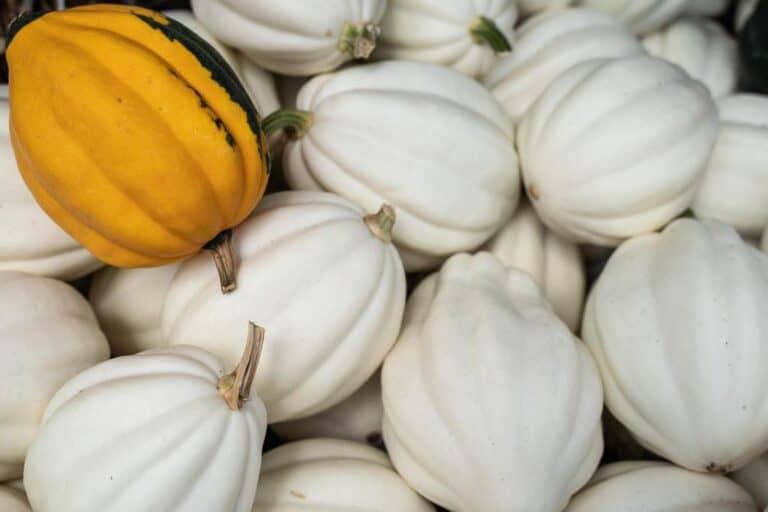Are Brussels Sprouts Starchy or Root Vegetables? (Facts You Should Know)
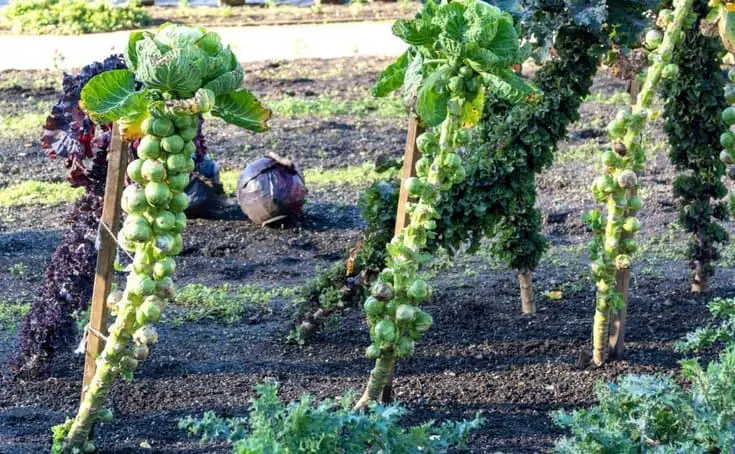
Brussels sprouts are cruciferous vegetables that belong to the Brassica oleracea family, specifically the gemmifera group. Brussels sprouts are also in the same family with broccoli, cauliflower, cabbage, kale, and collard greens.
They are a member of the cabbage family and are believed to have originated in Brussels, Belgium.
Eating vegetables every day has been linked to a lower risk of chronic disease and greater overall health. However, you may have heard that some particular vegetables should not be consumed every day.
Like starchy veggies. They are high in carbohydrates and, according to some, should be avoided. But this is not always the case.
Yes, they have more carbs compared to other foods, which is worrisome for a few people.
This is a good source of carbohydrates, gives you energy, and helps your brain function properly. They also contain important minerals like potassium, magnesium, and zinc.
Continue reading to discover the advantages and disadvantages of starchy and non-starchy veggies. We will also explain if Brussels sprouts could be categorized as root vegetables or not.
What Are Starchy and Non-Starchy Vegetables?
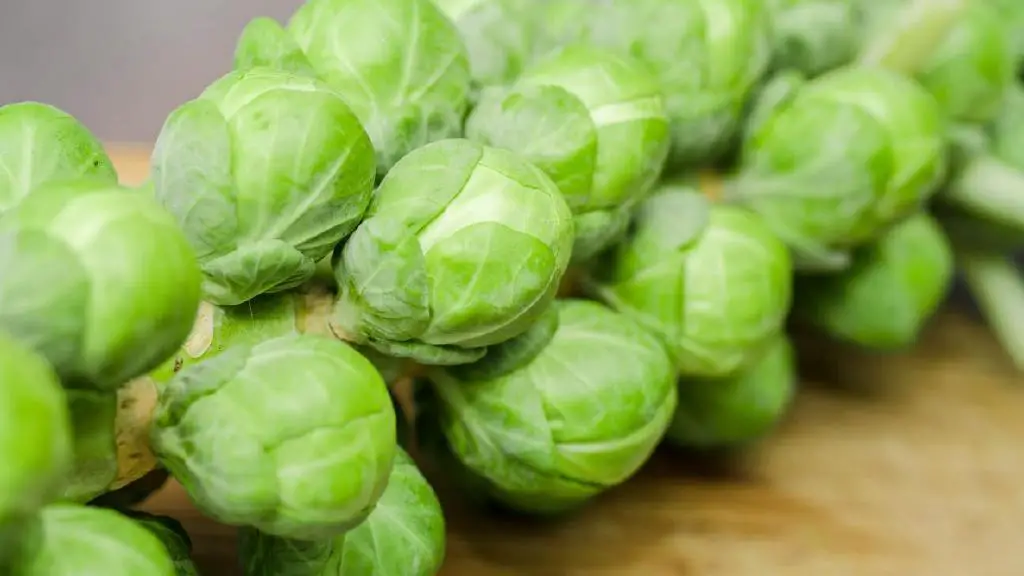
The most common type of carbohydrate in your diet is starch. It’s known as a complex carb because it’s made up of several linked joined sugar molecules.
Starch can be present in a variety of foods such as breads, noodles, cereals, pasta, and starchy vegetables. These starchy foods are easily availabe and consumed on daily basis.
Starchy veggies, as the name suggested, do have more starch compared to non-starchy vegetables. Non-starchy veggies, on the other hand, have only a minimal amount of starch.
We may find a large difference in the amount of carbs between the twos. Starchy vegetables, such as potatoes, contain about 15 grams of carbs and 80 calories per 1/2 cup (70–90 grams). For the same amount per serving, non-starchy veggies, such as broccoli, only have about 5 grams of carbs and 25 calories.
The most common type of carbohydrate in your diet is starch. It’s known as a complex carb because it’s made up of several linked, joined sugar molecules.
Starch can be present in a variety of foods, such as breads, noodles, cereals, pasta, and starchy vegetables. These starchy foods are easily available and consumed on a daily basis.
Starchy vegetables, as the name suggests, do have more starch compared to non-starchy vegetables. Non-starchy veggies, on the other hand, have only a minimal amount of starch and are considered an excellent side dish for those following a low-carbohydrate diet.
We may find a large difference in the amount of carbohydrate between the two. Starchy vegetables, such as potatoes, contain about 15 grams of carbs and 80 calories per 1/2 cup (70–90 grams). For the same amount per serving, non-starchy veggies, such as broccoli, only have about 5 grams of carbs and 25 calories.
Starchy Vegetables
Starchy vegetables contain significantly more starch (hence more carbs) than non-starchy vegetables. The complex carbohydrates are digested slowly. That’s why you get full easily.
But on the other hand, starchy vegetables are abundant in antioxidants, vitamins, and minerals, and should be part of a balanced diet.
Below are some starchy vegetables:
Corn, white potatoes, sweet potatoes, green peas, beets, acorn squash, butternut squash, turnips, carrots, and kohlrabi are some of the most popular root vegetables.
Non-Starchy Vegetables
Non-starchy veggies are those that have a low calorie and carbohydrate content. Non-starchy veggies give texture, taste, bulk, and rich color to every meal, in addition to providing important nutrients.
Below are some non-starchy vegetables:
Mushrooms, black olives, purple cabbage, cauliflower, eggplant, bean sprouts, arugula, asparagus, Brussels sprouts, celery, cabbage, red peppers, carrots, and Tomatoes.
| Read: Why Are Brussel Sprouts Called Brussel Sprouts? |
Are Brussels Sprouts Starchy Vegetables and High in Carbs?
Brussels sprouts are a vegetable that is often considered to be non-starchy type and low in carbohydrates. This means that they are a source of nutrition needed by our bodies, but not a good source of energy for them. So they may be suitable for people who are trying to follow a low-carbohydrate diet.
Brussels Sprouts Nutritional Ingredients
Brussels sprouts are a good source of dietary fiber, vitamin C, vitamin K, and folate. They also contain some minerals, including potassium and manganese. Brussels sprouts are low in calories and provide only modest amounts of protein and fat.
Vitamin K is particularly abundant in Brussels sprouts, which is required for blood clotting and bone health.
Brussels sprouts are also abundant in vitamin C, an antioxidant that aids iron absorption and plays a role in tissue repair and immunity.
Below are the main nutrients we found in 1/2 cup (78 grams) of cooked Brussels sprouts:
| Calories | 28 |
| Protein | 2 grams |
| Carbs | 5.5 grams |
| Fiber | 2 grams |
| Vitamin K | 91% of the Daily Value (DV) |
| Vitamin C | 53% of the DV |
| Folate | 12% of the DV |
Nutritions Data’s Opinions:
| Weight loss | ★★★★★ |
| Optimum health | ★★★★★ |
| Weight gain | ★★☆☆☆ |
| The good: This food is low in Saturated Fat, and very low in Cholesterol. It is also a good source of Thiamin, Riboflavin, Iron, Magnesium, Phosphorus and Copper, and a very good source of Dietary Fiber, Vitamin A, Vitamin C, Vitamin K, Vitamin B6, Folate, Potassium and Manganese. |
Are Brussels Sprouts Considered a Root Vegetable?
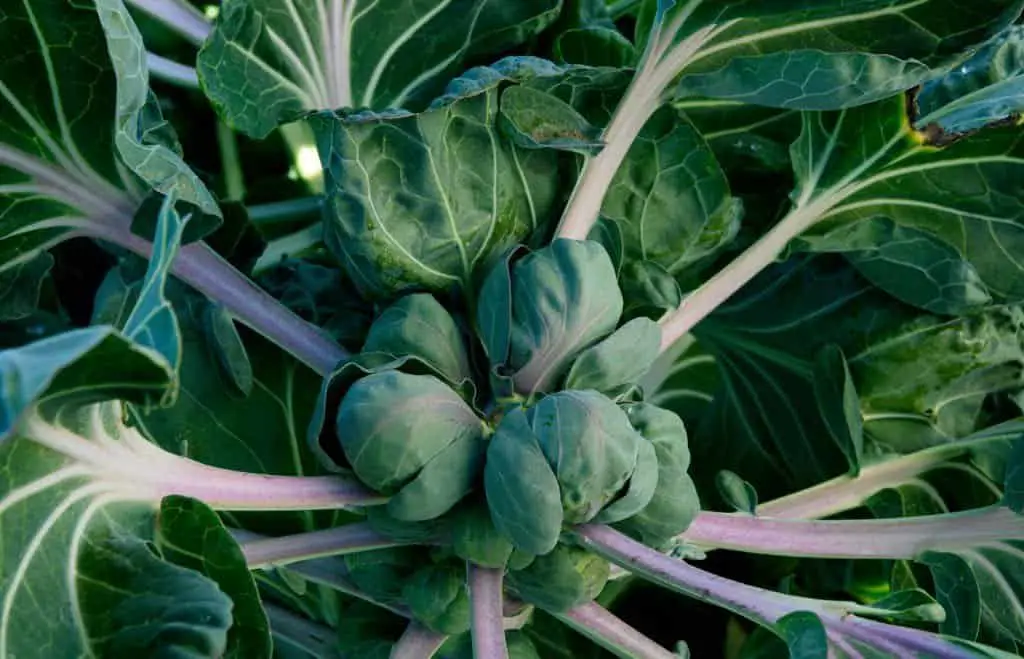
Brussels sprouts are small, cabbage-like vegetables that are considered green vegetables. Some people classify Brussels sprouts as root vegetables because they grow underground.
Some argue that the stalk of a Brussels sprout is a root, while others claim that the leaves are the only true root. The fact of the matter is that Brussels sprouts are not a root vegetable.
In the literal sense, root vegetables are the fruits of the ground, as they are the robust bulbs that live under the soil.
Brussels sprouts are grown on the stalks above the soil. That’s why it is not considered a root vegetable.
Root vegetables are available in a variety of forms, colors, and sizes. The following are some of the most popular root vegetables:
Carrots, Beets, Parsnips, Turnips, Onions and shallots, Radishes, Potatoes, and Sweet potatoes.
| Related: Do Brussel Sprouts Grow Underground? |
Are Brussels Sprouts the Same as Baby Cabbage?
Despite the fact that they both come from the Brassica oleracea family, Brussels sprouts and cabbage are two quite distinct vegetables. They are different in the growing, harvesting methods, nutrition, texture, and taste of buds.
Unlike Brussels sprouts, which create clusters of buds along a tall, fibrous stalk, cabbage produces a huge head that grows close to the ground. The Farmer’s Almanac says that cabbage and Brussels sprouts are both in season from late fall to early spring, but it takes a lot longer to harvest sprouts than cabbage.
Brussels sprouts are similar to cabbage heads, but smaller. In terms of taste, these veggies are extremely similar, but Brussels sprouts do have a milder flavor and a firmer texture.
While both veggies are packed with nutrients, Brussels sprouts are a superfood veggie compared to cabbage. Brussel sprouts, a gemmifera variety, contains more potassium, phosphorus, magnesium, folic acid, and vitamins A, C, and K. Some of those micro nutrients are absent or found in lesser amounts in cabbage.
Can You Eat Brussels Sprouts Raw?
Many people are hesitant to try Brussels sprouts because they have only ever eaten them cooked. However, Brussels sprouts can also be eaten raw and are, in fact, very healthy that way.
Just chop Brussels sprouts and add them to your salad or stir-fry. They taste a bit like cabbage and have a slightly nutty flavor. Raw Brussels sprouts are a great source of fiber, vitamin C, and vitamin K.
Eating Brussels sprouts raw is not the most popular way to enjoy them, but it is possible. They have a slightly bitter taste that some people love and others can’t stand. If you’re willing to give them a try, here’s how to do it:
- Cut off the stem and remove any brown leaves.
- Cut the sprouts in half, or into thin slices if they’re large.
- Toss with a little olive oil or vinaigrette and your favorite seasonings.
- Eat immediately, or store it in the fridge for an hour or two.
- If you’re not a fan of Brussels sprouts, don’t worry, there are other ways to enjoy them!
Why Don’t Some People Like Brussels Sprouts?
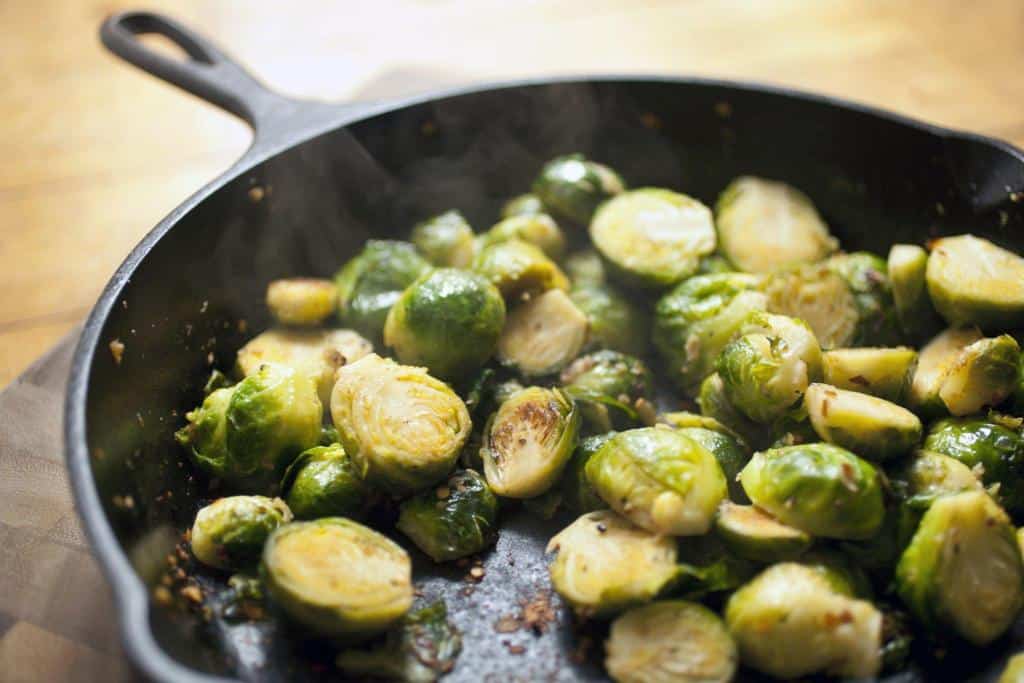
One reason could be the taste. Brussels sprouts have a slightly bitter taste that can be off-putting for some. They also have a slightly earthy flavor, which can be another deterrent for some people.
Another reason why some people don’t like Brussels sprouts could be because they’re tough to chew. Brussels sprouts are a dense vegetable, so they can be hard to chew for some. This can lead to an unpleasant experience when eating them.
Finally, another possible reason why some people don’t like Brussels sprouts is that they contain difficult-to-digest carbohydrates. Eating these veggies uncooked may cause a variety of gastrointestinal issues.
What Happens if You Eat Too Many Brussels Sprouts?
If you’re like most people, you probably think of Brussels sprouts as little cabbages that taste a bit bitter. And you’re right — they do have a slightly bitter taste. But they’re also packed with nutrients, including vitamins A, C and K, as well as fiber and antioxidants. So, are Brussels sprouts healthy? Yes, they are!
But there is such a thing as eating too many Brussels sprouts. If you eat too much, you may experience some unpleasant symptoms, such as gas and bloating. You may also have an upset stomach or diarrhea.
So how many Brussels sprouts is too many? There isn’t really a set number, but it’s probably best to limit yourself to no more than two or three servings per day. |

